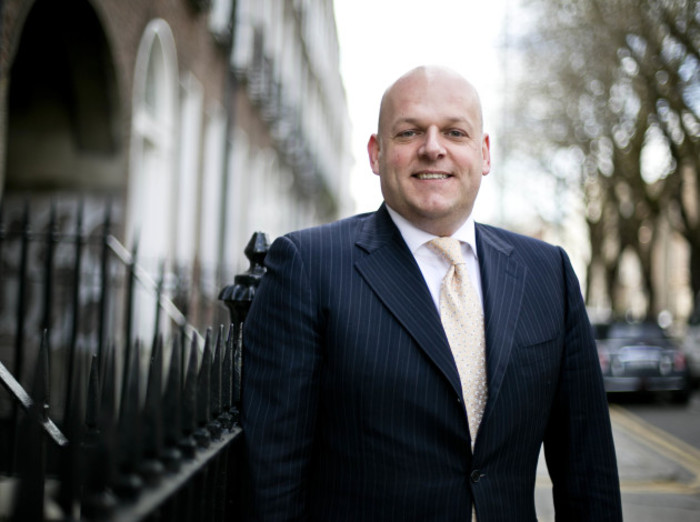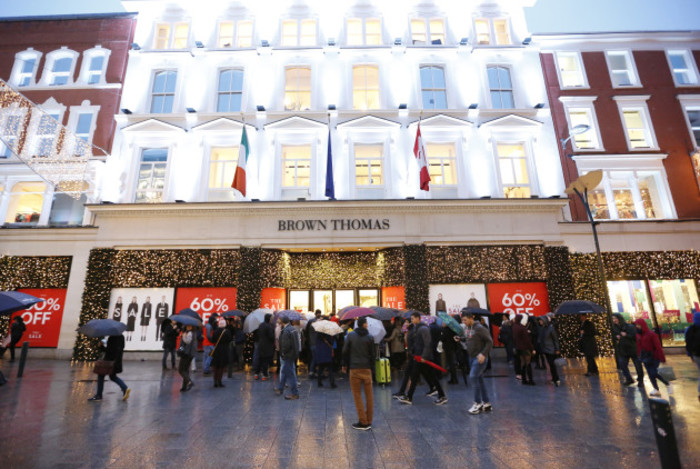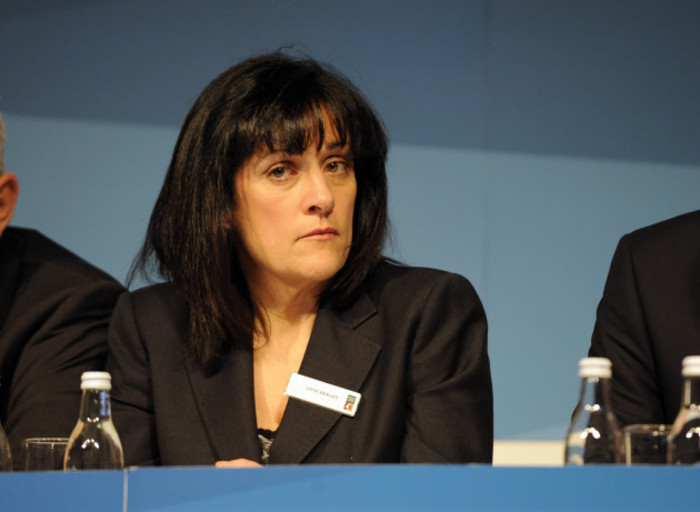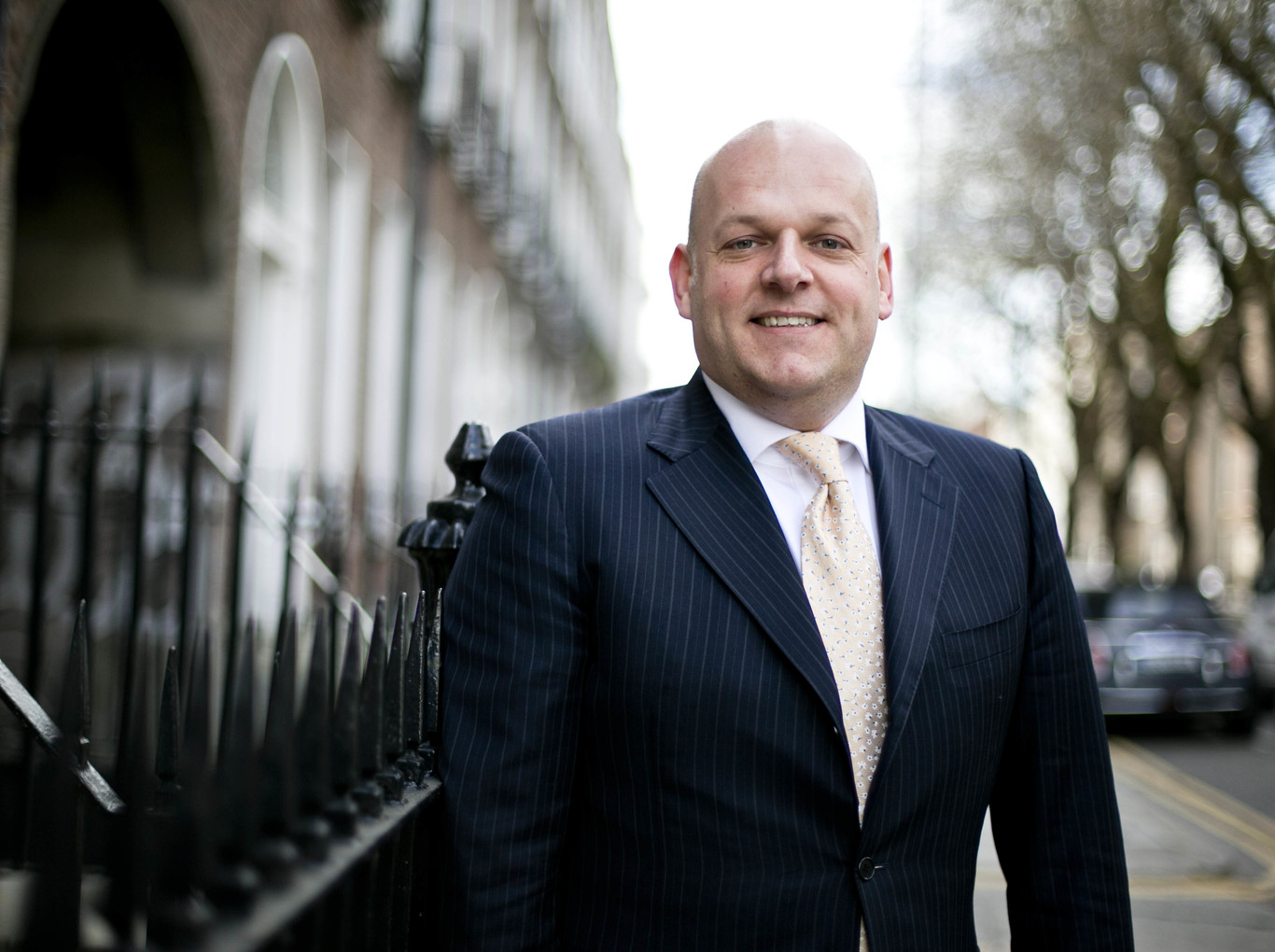From sports cars to manning reception: How one recruiter survived the recession
As part of our weekly How My Business Works series we profile Brompton Recruitment.
LETTING THE LAST one go was probably the worst.
Peter Barry had cut the staff at his recruiting firm from about a dozen to just one after his business was savaged in the recession. Suddenly in 2008, companies stopped hiring and small headhunters became disposable luxuries.
“It was hard to make staff redundant and by the end it was just me and one other girl,” he tells Fora.
“She turned to me one day and said, ‘You can’t afford me any more’. And then she went temping with one of my clients. I went from sports cars to sitting on my own in the reception of my building.”
The Castleknock native was in his mid-30s at the time, having spent much of his youth building up his recruitment agency before the economy imploded.
He would spend the next few years treading water. His employees were gone, his firm was in the red and he had an outstanding bill of about €120,000 due to the taxman.
“Sales stagnated at €150,000 to €200,000 and I didn’t take a proper wage for two years, I was just making ends meet,” he says.
However it wasn’t until 2012 when Barry started to become completely disillusioned. With the business stuck in the doldrums for four years and little sign of improvement, he began to lose hope.
“It was when I started thinking that I would have to give up,” he says. “I tried to get another job in recruitment and had conversations with a few companies, but the market was pretty flat. The last thing that anyone wanted was to hire a guy who owned his own agency.
“(Then) I had a daughter in 2012. When Charlotte was born that solidified my desire to keep going. I had to keep going.”
What do you do and how long have you done it for?
Brompton Recruitment is one of the many companies that operates in the Irish job-hunting market. The Dublin-based firm receives fees from placing people in jobs, which can be either temporary or permanent roles.
Barry started Brompton in 2001, several years after leaving college. Having moved between a couple of different jobs, including a stint as a nightclub manager, a two-year stretch with a recruitment firm gave him the confidence to strike out on his own.
“My mother was self-employed, she ran a gym in Rathgar, so I was used to entrepreneurs and the startup business,” he says. “I started out (doing recruiting) in sales and marketing in the motor trade in 2001 and the business just grew. I employed one other person in 2001 and we peaked in 2007 with 12 staff.”
 Brompton Recruitment founder Peter Barry
Brompton Recruitment founder Peter Barry
The firm survived the crash after 2008, but only just. After cutting staff and costs to the bone, Brompton was a one-man band until the clouds of the recession began to lift.
“2013 was when the regeneration happened,” Barry says. “In 2013 we had turnover of €600,000, it was €2.6 million in 2014, it happened very organically. The money that I owed to the Revenue Commissioners was paid in full. I wanted to frame my tax clearance certificate when I got it.”
The 40-year-old says that trading during the recession made him a better businessman and gave him a new perspective on his company, which now employs a dozen people again.
“Now I’m better at structuring, budgeting and managing the business. I’m dealing with more sales than we ever had in the past and the business is running with more clients than we ever had,” he says.
“Pre-recession Peter was always interested in sales. It was always revenue, never profit. I was so focused on getting to things like €1 million turnover that I didn’t focus on smaller things and the nuances of the business.
“There we times when I could have closed the business but I felt it was worthwhile trying to trade out of it. I learned how to engage with people rather than going insolvent and starting again.”
What are your costs and how do you make money?
Most recruitment companies have two main arms to their business, temporary and permanent staff.
People send their CVs to Brompton and then the company tries to find a position that is a good fit based on the individual’s skills and experience.
When large employers who outsource their recruiting tell Brompton that they need to fill a lot of vacancies, it is up to the recruiter to find suitable people. Although a small number of agencies charge job seekers, like many recruiters Brompton just charges the companies it is working with.
The recruiter usually bills firms on a per-hour basis for temporary staff. Businesses can also be levied with a one-off charge based on an employee’s salary for permanent placements. For example, if the recruiter finds someone for a €60,000-a-year role, it might charge the company €12,000.
Brompton charges about 15 to 20% of the first year’s salary for permanent staff, which is around average for the industry. Prices vary a lot for temporary staff depending on how in demand they are.
“On the low-end, temporary staff like packers, we would be looking for a margin of about 50-60 cent per hour after we have paid the employee,” Barry says.
“On the more professional side, like with accountants, we could look for about €3 to €10 an hour depending on how hard the role is to fill. About 75% of our revenue comes from temporary staff.”
Staff make up the bulk of the company’s costs while commercial rates, insurance, advertising and paying to do up the office have also drained their fair shares of cash.
Although it has trimmed its deficit, which had climbed to €136,000 at the end of 2010, working back to profitability has been a slow process as the firm reported a small loss of €7,000 during 2014.
Barry says that the following 12 months were kinder to the business, which he says made a profit of about €25,000 during the period and saw turnover rise from €2 million to nearly €5 million.
What is your market?
Whereas some agencies specialise in certain sectors such as construction or technology, Brompton tries to operate in a wide variety of areas including law, accounting and office staff. Much of its work comes in high-end retail with companies such as Brown Thomas, Meteor and Louis Vuitton.

“If you walk into an Eir or Meteor shop you’re more than likely being served by a Brompton member of staff,” Barry says.
Brompton is active in several Irish cities, although about 60% of its business comes from Dublin.
“The first port of call outside of Dublin would be Cork,” Barry says. “The primary aim is to have a full operation in Cork, it is budgeted for as part of the investment plans for 2016, we will probably have four or five different people there.”
He says that the only other opportunities for major expansion are in Galway and Limerick, although he adds that he would like the company to move across the border.
“I would really like to go to Belfast if Cork works out,” he says. “If we achieve our targets here then the UK would be the next step; it’s so much bigger and companies tend to be a lot more engaged with recruitment agencies.”
What is the competition?
The Irish market is a crowded one for recruiters. There are hundreds of companies operating across the country, varying in size dramatically from one-person agencies to large listed businesses like CPL or UK-based Hays.
For some context, as Brompton’s revenue nudged €5 million last year, CPL was taking in just under €400 million.
Barry says that instead of going up directly against the larger operators, his business is trying to snap up some of the smaller accounts they overlook.
“The major players are only interested in accounts with 100 to 200 people; we want to be below them doing accounts where you are filling maybe 10, 20, 30 positions,” he says, adding that the firm has an advantage over its larger rivals is its flexibility.
“If a client needs something done a certain way we can bend to it. For example, some clients may want to hire 20 people, but they want the agency to manage them,” he says.
“We can say that we’ll just charge the wages and a management fee instead of billing hourly. A big agency doesn’t want that unless they have 1,000 people on their books. I can do it because my costs are more controlled than a larger company.”
 CPL Resources CEO Anne Heraty
CPL Resources CEO Anne Heraty
What is your vision for the company?
In the short term, the task for Barry is to keep growing the company while keeping an eye on the bottom line. He is predicting sales of about €6.5 million this year and hopes that the company can start to move up the ranks and knock about with some of the industry’s larger players.
“We are trying to move away from being a small agency to a mid-level one where you would be turning over between €10 million and €30 million,” he says. “We would like to go to turning over €25 million to €30 million consistently within the next five years and build up a cash nest egg that will get us through the next recession.”
How to get to that stage is a different story and Barry doesn’t rule out gobbling up a couple of smaller rivals, although that remains relatively unlikely in the immediate future.
“I would want to grow the temporary side of the business a bit more, maybe through acquisition, but we would need investment to do that,” he says. “Either we acquire someone or they could acquire us, it depends on who comes in and what they can bring.”
However, despite the fact that he’s given it some thought, Barry doesn’t seem ready to sell just yet.
“I don’t know if it is the right time to exit the business, there is still a lot of growing that I want to do,” he says.
“I don’t want to be a CPL or a Hays, I just want to be recognised for quality and be a solid mid-range company. I want the business to keep going; it’s mine and I want it to survive for me and for my daughter.”
This article is part of our weekly series examining the nuts and bolts of businesses. If you would like to see your company featured please email news@fora.ie.






